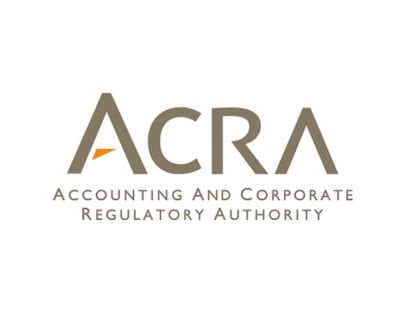Accounting Standards Council or ASC is a governing body that formulates and promulgates accounting standards in Singapore. These standards include the Singapore Financial Reporting Standards (International), Financial Reporting Standards (FRS), and Singapore Financial Reporting Standards for Small Entities (SFRS for SE).
A brief history of accounting standards in Singapore

In August 2002, the Council on Corporate Disclosure and Governance (CCDG) was established. It creates accounting standards for Singapore-based companies known as the Financial Reporting Standards (FRS).
In November 2007, CCDG was dissolved and the Accounting Standards Council (ASC) was introduced. Aside from the formulation and promulgation of accounting standards, ASC also prescribes accounting standards for companies, charities, and societies. On the other hand, the Accounting and Corporate Regulatory Authority (ACRA) monitors and enforces established policies to Singapore-based companies.

What is IFRS?
Accounting standards in Singapore are compliant with the standards set by the International Financial Reporting Standards (IFRS). IFRS aims to create a common accounting language to yield financial statements that are consistent and comparable globally.
Every country that adapts the IFRS standards has added some clauses to the published rules to meet their business requirements. In line with that, Singapore introduced SFRS or the Singapore Financial Reporting Standards. It requires companies in the country, which are registered after January 1, 2003, to comply with the SFRS.
Benefits of IFRS
IFRS brings transparency. One of the goals of IFRS is to enhance the international comparability of financial information. It enables investors to make informed business decisions.
IFRS bolsters accountability. IFRS reduces the information gap between capital providers and the people they have entrusted their money to.
IFRS contributes to economic efficiency. Investors are able to identify opportunities and risks globally. Thus, they can improve capital allocation.
The ASC of Singapore aims for full convergence of SFRS with IFRS. This is to ensure that Singapore companies’ financial statements have global comparability and transparency.
How many accounting standards are there in Singapore?
There are about 41 different accounting standards in Singapore. Each standard is named FRS X (e.g., FRS 1, FRS 2, etc.) and covers a specific topic like cash flow statements, subsidiary undertakings, and so on.
One of the main principles of Singapore accounting standards is the use of accrual-based accounting. This method records and recognises revenue and transactions as they occur. It allows business owners to have a good grasp of their past transactions, future obligations, and earnings.
Singapore Financial Reporting Standards for Small Entities (SFRS for SEs)
As the business economy becomes more competitive and demanding, accounting standards are becoming more complex. With that, small businesses feel that it is difficult to comply with the established requirements. To address this matter, ASC of Singapore declared the issuance of SFRS for Small Entities in November 2010.
SFRS for SE aims to provide relief to small companies in complying with full SFRS requirements. It establishes accounting standards for small businesses in Singapore. This move ensures that quality, transparency, and global comparability is maintained.
Companies incorporated in Singapore can apply for an SFRS for SE provided that:
- the entity is not publicly accountable
- the entity publishes general purpose financial statements
- it is a small entity that meets two of the three criteria:
- total annual revenue of less than S$10 million
- total gross assets of less than S$10 million
- total employees not more than 50
Key features of SFRS for SE
- Streamlined measurement rules and drafting requirements
- Fewer choices and options in accounting treatment
- Reduced disclosures
- Amendments occur only every three years
Small businesses should review their growth plans, business nature, and other future goals first before applying for SFRS for SE. Companies that are about to reach the size threshold will be better off adhering to the full SFRS to avoid problems. SFRS for SE will be ideal for newly-established businesses that find the full SFRS too demanding.






Leave A Comment